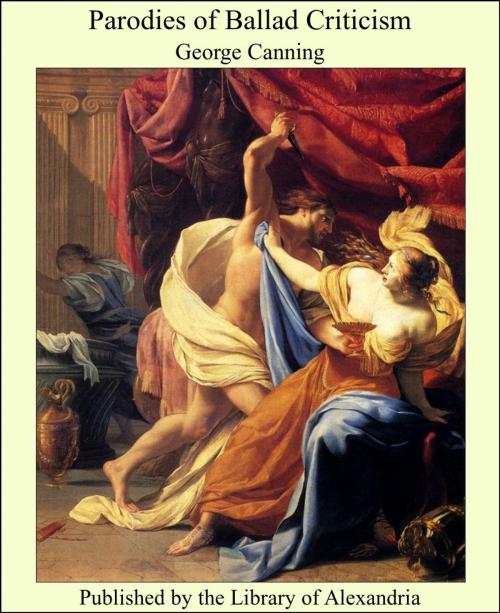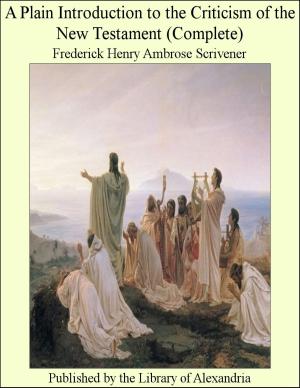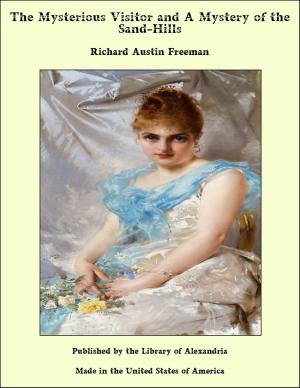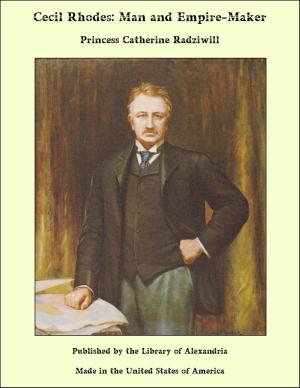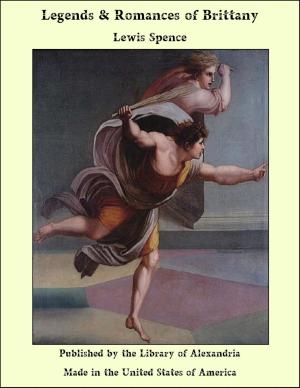Parodies of Ballad Criticism
Nonfiction, Religion & Spirituality, New Age, History, Fiction & Literature| Author: | George Canning | ISBN: | 9781465501325 |
| Publisher: | Library of Alexandria | Publication: | March 8, 2015 |
| Imprint: | Language: | English |
| Author: | George Canning |
| ISBN: | 9781465501325 |
| Publisher: | Library of Alexandria |
| Publication: | March 8, 2015 |
| Imprint: | |
| Language: | English |
Joseph Addison’s enthusiasm for ballad poetry (Spectators 70, 74, 85) was not a sheer novelty. He had a ringing English precedent in Sidney, whom he quotes. And he may have had one in Jonson; at least he thought he had. He cited Dryden and Dorset as collectors and readers of ballads; and he might have cited Others. He found comfort in the fact that Molière’s Misanthrope was on his side. The modern or broadside version of Chevy Chase, the one which Addison quoted, had been printed, with a Latin translation, in the third volume of Dryden’s Miscellany (1702) and had been appreciated along with The Nut-Brown Maid in an essay Of the Old English Poets and Poetry in The Muses Mercury for June, 1707. The feelings expressed in Addison’s essays on the ballads were part of the general patriotic archaism which at that time was moving in rapport with cyclic theories of the robust and the effete, as in Temple’s essays, and was complicating the issue of the classical ancients versus the moderns. Again, these feelings were in harmony with the new Longinianism of boldness and bigness, cultivated in one way by Dennis and in another by Addison himself in later Spectators. The tribute to the old writers in Rowe’s Prologue to Jane Shore (1713) is of course not simply the result of Addison’s influence.[1] Those venerable ancient Song-Enditers Soar’d many a Pitch above our modern Writers. It is true also that Addison exhibits, at least in the first of the two essays on Chevy Chase, a degree of the normal Augustan condescension to the archaic—the vision which informs the earlier couplet poem on the English poets. Both in his quotation from Sidney (“… being so evil apparelled in the Dust and Cobweb of that uncivil Age, what would it work trimmed in the gorgeous Eloquence of Pindar ?”) and in his own apology for the “Simplicity of the Stile” there is sufficient prescription for all those improvements that either a Ramsay or a Percy were soon actually to undertake. And some of the Virgilian passages in Chevy Chase which Addison picked out for admiration were not what Sidney had known but the literary invention of the more modern broadside writer. Nevertheless, the two Spectators on Chevy Chase and the sequel on the Children in the Wood were startling enough. The general announcement was ample, unabashed, soaring—unmistakable evidence of a new polite taste for the universally valid utterances of the primitive heart. The accompanying measurement according to the epic rules and models was not a qualification of the taste, but only a somewhat awkward theoretical dimension and justification
Joseph Addison’s enthusiasm for ballad poetry (Spectators 70, 74, 85) was not a sheer novelty. He had a ringing English precedent in Sidney, whom he quotes. And he may have had one in Jonson; at least he thought he had. He cited Dryden and Dorset as collectors and readers of ballads; and he might have cited Others. He found comfort in the fact that Molière’s Misanthrope was on his side. The modern or broadside version of Chevy Chase, the one which Addison quoted, had been printed, with a Latin translation, in the third volume of Dryden’s Miscellany (1702) and had been appreciated along with The Nut-Brown Maid in an essay Of the Old English Poets and Poetry in The Muses Mercury for June, 1707. The feelings expressed in Addison’s essays on the ballads were part of the general patriotic archaism which at that time was moving in rapport with cyclic theories of the robust and the effete, as in Temple’s essays, and was complicating the issue of the classical ancients versus the moderns. Again, these feelings were in harmony with the new Longinianism of boldness and bigness, cultivated in one way by Dennis and in another by Addison himself in later Spectators. The tribute to the old writers in Rowe’s Prologue to Jane Shore (1713) is of course not simply the result of Addison’s influence.[1] Those venerable ancient Song-Enditers Soar’d many a Pitch above our modern Writers. It is true also that Addison exhibits, at least in the first of the two essays on Chevy Chase, a degree of the normal Augustan condescension to the archaic—the vision which informs the earlier couplet poem on the English poets. Both in his quotation from Sidney (“… being so evil apparelled in the Dust and Cobweb of that uncivil Age, what would it work trimmed in the gorgeous Eloquence of Pindar ?”) and in his own apology for the “Simplicity of the Stile” there is sufficient prescription for all those improvements that either a Ramsay or a Percy were soon actually to undertake. And some of the Virgilian passages in Chevy Chase which Addison picked out for admiration were not what Sidney had known but the literary invention of the more modern broadside writer. Nevertheless, the two Spectators on Chevy Chase and the sequel on the Children in the Wood were startling enough. The general announcement was ample, unabashed, soaring—unmistakable evidence of a new polite taste for the universally valid utterances of the primitive heart. The accompanying measurement according to the epic rules and models was not a qualification of the taste, but only a somewhat awkward theoretical dimension and justification
